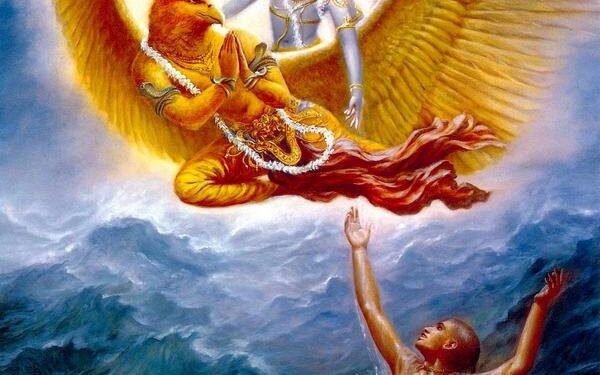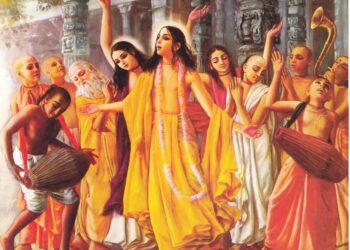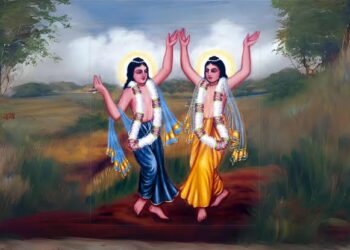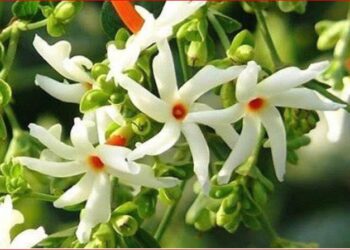1.114.71. An ungrateful fellow, a person of ignoble qualities, a person who nurses a grouse for a long time and a man of crooked nature – these four are the real candalas and the fifth is one born as such.
1.114.72. Even an insignificant enemy of evil intentions should not be neglected carelessly. Even a tiny spark of fire, if not put out immediately, consumes the entire world.
1.114.73. He who is quiet and tranquil in the boisterous age of blooming youth deserves the credit for being tranquil. Who does not become naturally quiet and tranquil when all his vital forces are spent out?
1.114.74. O foremost among brahmanas, riches, like the public thoroughfare are common to everyone. Do not be elated and haughty thinking “This is mine.”
1.114.75. The body that is dependent on the vital secretions is dependent on the mind, too. If the mind is disarranged the vital secretions are destroyed. Hence, mind shall be preserved always. If the mind is in perfect order the vital secretions function properly.
Suta said:
1.115.1. One should keep oneself far away from a false wife, a deceitful friend, a tyrannous king, a disobedient son, a defiled daughter and a turbulent territory.
1.115.2. Alas, life in the Kali age is troublesome indeed. For, virtue has taken to renunciation, penance has started its long sojourn, truth is in exile in a foreign land, earth has become barren, people are fraudulent; brahmanas have become greedy; men are uxorious; women are fickle and wayward and base men are raised to the high position. Blessed indeed are they who are dead.
1.115.3. Blessed are they who do not witness the destruction of their family, ruin of their lands, the sexual dalliance of their wives with other men and the infamous indulgence of their sons in vice.
1.115.4. None can be delighted with their vicious sons; how can one feel a thrilling rapture in the company of a disloyal wife? There is no question of confiding in a deceptive friend and no peaceful life is possible in a trouble-infested land.
1.115.5. Food doled out by others, money robbed from others, defiling of another man’s bed, sexual dalliance with another man’s wife and a residence in another man’s house will strip even Indra of his glory.
1.115.6. Sin spreads from a man to man slowly by conversation, mutual touch, frequent association, taking food together, sitting together, lying together and travelling together.
1.115.7. Women perish due to their beauty, penance due to fury, the way due to an undue length and pious brahmana by taking sudra’s food.
1.115.8. By sitting together, sharing the same bed, taking food together and jumbling up the rows sin is transmitted from man to man like water from pot to pot.
1.115.9. There are many defects in fondling and many benefits in thrashing. Hence, a disciple and the son are to be thrashed, not fondled.
1.115.10. A long way is old age to men; water is old age to mountains; abstention from sexual intercourse is old age to women and sunlight is old age to clothes.
1.115.11. Base men desire strife, the middling desire reconciliation and the noble desire high honour. Verily, honour is prized by the great as the greatest asset.
1.115.12. Honour is at the root of wealth; if honour is secured of what avail is wealth; if one has lost honour and dignity, of what avail is wealth or longevity?
1.115.13. The base and the mean desire for riches; the middling desire for riches and honour and the excellent desire for honour. Verily, honour is an asset of the great.
1.115.14. In the forest, the lions do not bend their ears (in supplication); even when they are hungry they do not look to a share. Men of noble birth never stoop to meanness, even when they are deprived of their wealth.
1.115.15. The lion is neither anointed nor consecrated. The lordship of animals comes to it naturally as it has inherent valour.
1.115.16. No great task can be achieved by any of these: an erring merchant, a highly proud servant, an easy going mendicant, an impoverished debaucher, a helan of a girl bitter in speech.
1.115.17. Five incongruent things that we meet in the world are: the poverty of the benevolent, the opulence of the miser, disobedience in a son, compulsion to serve a wicked man and death of persons engaged in helping others.
1.115.18. There are five things which burn without fire: separation from wife; insult from kins; balance of debt yet to be discharged; service to a low and base master and desertion of friends in poverty.
1.115.19. Among the thousands worries that agitate the mind four are very severe – nay, they are the sharp edges of a sword: insult at the hands of a low born person, the starving wife, cold reception by the beloved and harassment from brothers.
1.115.20. The five uproot all miseries: an obedient son, a remunerative knowledge, freedom from sickness, the companionship of the good and a loving wife surrendering herself.
1.115.21. The deer, the elephant, the moth, the honeybee and the fish – these five are destroyed due to addiction to their five sense organs. [deer (ear) – listens to sweet music and thus caught by the hunter; elephant (touch) – caught through she-elephant; moth (eye) – attracted by the colour of the flame and burnt; honeybee (nose) – attracted by the fragrance of lotus and caught within; fish (taste) – nibbles at the bait and thus caught. Even one of these organs is destructive. How is it possible that man who uses all the five will escape destruction?]
1.115.22. Five brahmanas, though as learned as Brihaspati, are never honoured: the impatient, the harsh, the haughty, the ill-clad and the uninvited.
1.115.23. These five are clearly defined and decided even when a child is born: its span of life, its activities in later life, its character, learning and the time of death.
1.115.24. Help rendered to those who suffer when climbing a mountain, from imminent drowning in water, attack of cows and bulls, seizure by the wicked and a spiritual fall are very commendable.
1.115.25. These five are never stable or long-standing: the shadow of clouds, pleasant attitude of a wicked man, intimacy with another man’s wife, youth and riches.
1.115.26. Life is unstable in the world, youth and riches are unstable, sons and wives are unstable, but virtue, fame and renown are permanent.
1.115.27. Even a life for a hundred years is too short. Half that period is taken up by nights. The remaining half is rendered fruitless by sickness, sorrow, old age and exertions.
1.115.28. It is said that man’s span of life is a hundred years. It is too short. Half of that period is spent as nights. Half of the remaining half is spent in infancy and childhood or grieving over the separation or death of kinsmen or in service rendered to the king. The remaining period is as fickle as the waves in water. Of what avail is the sense of prestige and dignity?
1.115.29. Days and nights in the garb of old age traverse the earth. Death swallows the living beings like the serpent taking in air.
1.115.30. If our activities while walking or standing, waking or sleeping are not for the service of fellow beings, they are not different from bestial actions.
1.115.31. What is the difference between a beast and a beast in human form with an intellect devoid of discrimination between what is wholesome and what is not; who enters into endless arguments with people in regard to the Vedic expositions and who remains fully satisfied if he can fill his belly.
1.115.32. He who has not earned spotless reputation for valour, austerity, charity, learning or acquisition of wealth is but an excrement of his mother.
1.115.33. A good life even for a moment is considered a perfect life by those who know the same – if it is full of perfect knowledge, valour and fame and men are not disrespected. Even a crow lives a long life partaking the oblations.
1.115.34. Of what avail is that life devoid of wealth and honour? Of what use is that friend who hesitates whether he is to be friendly or not? O ye, adopt the rite of a lion, do not be grief-stricken. Even a crow lives a long life partaking the oblations.
1.115.35. If a man does not sympathize with and render help to himself, his preceptor, his servants, the poor public and his friends, of what purpose is his life? Even a crow lives for a long time partaking the oblations.
1.115.36. Days come and go to a man devoid of virtue, wealth and love. Although he may breathe, his life is like that of the bellows of the blacksmith.
1.115.37. Success is for him who has an independent means of subsistence and not for him who depends on others. Those who depend on others are no better than dead even though physically alive.



















